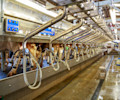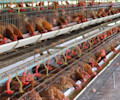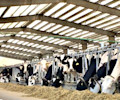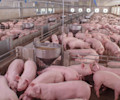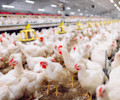Contrasting ESG profiles
In recent years, Amazon has come under increasing investor pressure on many environmental, social and governance (ESG) issues. It endured a bruising battle with investors over its tax minimisation strategy, and is currently the subject of a shareholder campaign over its use of foam packaging materials, led by As You Sow. And its record hasn’t been great: Bezos plummeted from first to 87th in a ranking of corporate leaders due to his firm’s poor response to ESG concerns.
By contrast, Whole Foods looks like a good buy from an ESG perspective. Its mission is predicated on a sustainable environment. As it claims on its website: “Since we opened our first store in 1980, we’ve not only been passionate about healthy food, we’ve been passionate about a healthy planet.” It wins plaudits for its labour relations, and it’s been on Fortune magazine’s 100 Best Companies to Work For list for 20 years.
The retailer has also won praise for using the ‘5-Step’ Animal Welfare Rating system managed by non-profit Global Animal Partnership (GAP), which is recognised by many as best practice in the field.
However, as a major retailer of meat, poultry, fish and dairy, Whole Foods is also on the front line of one of the fastest emerging concerns among investors: sustainable food.
Whole Foods and the protein supply chain
Last year, Whole Foods was one of 16 companies targeted by a $2 trillion investor coalition led by the FAIRR Initiative and which included investment heavyweights such as Aviva Investors and Robeco. The investors warned that financial markets are not currently valuing the risks inherent in the meat industry appropriately, and urged the company to set a strategy to diversify away from a reliance on animal protein and into plant-based sources of protein.
The investor argument is a simple one of supply and demand. Much of the world relies on meat as a core source of protein but the meat supply chain is failing to address current demand without creating enormous public health issues such as the recent outbreak of avian flu and the emergence of antibiotic-resistant bacteria. The livestock sector is also linked to environmental damage including pollution, water scarcity and disproportionate levels of greenhouse gas emissions.
For example, beef requires 160 times more land, and produces 11 times as much greenhouse gas as staples such as potatoes, wheat and rice, on a per calorie basis. A single pound of beef requires, on average, 1,800 gallons of water — compared with 147 gallons to produce a pound of corn. As developing countries such as China increase their meat consumption, the global environmental impacts will become increasingly challenging, and consumer concerns are likely to grow.
From an investment point of view, the inability of the existing protein supply chain to cope with the projected increase in demand creates the potential for a financial bubble, termed by some as the ‘protein bubble’. That could mean a widespread overvaluation of farming and food companies which puts billions of dollars of value at risk.
Companies such as US food giant General Mills — maker of Häagen Dazs and Yoplait — have acted on the ‘protein bubble’ threat by supporting the biotechnology start-up Beyond Meat, which is emulating the taste and texture of meat with plant-based burgers. Another example is Dean Foods, the largest milk supplier in the US, which has acquired a minority stake in Good Karma Foods, which makes alternatives to dairy products using flaxseed.
Amazon can help lead solutions
If the solution to the ‘protein bubble’ is likely to involve technology and innovation, then there are few better placed than Amazon to help Whole Foods. Amazon is, without doubt, one of the most innovative companies on the planet. Its application of technology to promote Whole Foods core values around quality standards and promoting the well-being of its supply chaincould be transformative.
Few modern-day corporations have the reach and influence of Amazon. It has captured 43% of all internet retail sales and runs one of the world’s largest logistics networks. As a mega purchaser, it can insist on standards and practices that could push the market towards sustainable protein production faster and more effectively than perhaps any other company. Its public profile both makes it amenable to pressure, and should catalyse its suppliers as well as its competitors to improve their performance in response.
As a natural foods specialist, Whole Foods is well positioned to take advantage of the growing interest among concerned consumers in sustainable, plant-based proteins that mimic meat. In the UK, Tesco says demand for vegetarian and vegan ready meals and snacks has soared 40% in the past year. Consumers increasingly recognise both the health and environmental benefits of reduced meat consumption.
If Whole Foods can teach Amazon a few things about its ESG management, and Amazon can use its know-how to tackle long-term challenges such as the creation of a sustainable protein supply — then the acquisition could prove valuable for all involved.
This article was first published in Investment Week: https://www.investmentweek.co.uk/investment-week/opinion/3013257/there-is-no-one-click-solution-for-amazons-usd13bn-esg-issues
FAIRR insights are written by FAIRR team members and occasionally co-authored with guest contributors. The authors write in their individual capacity and do not necessarily represent the FAIRR view.

